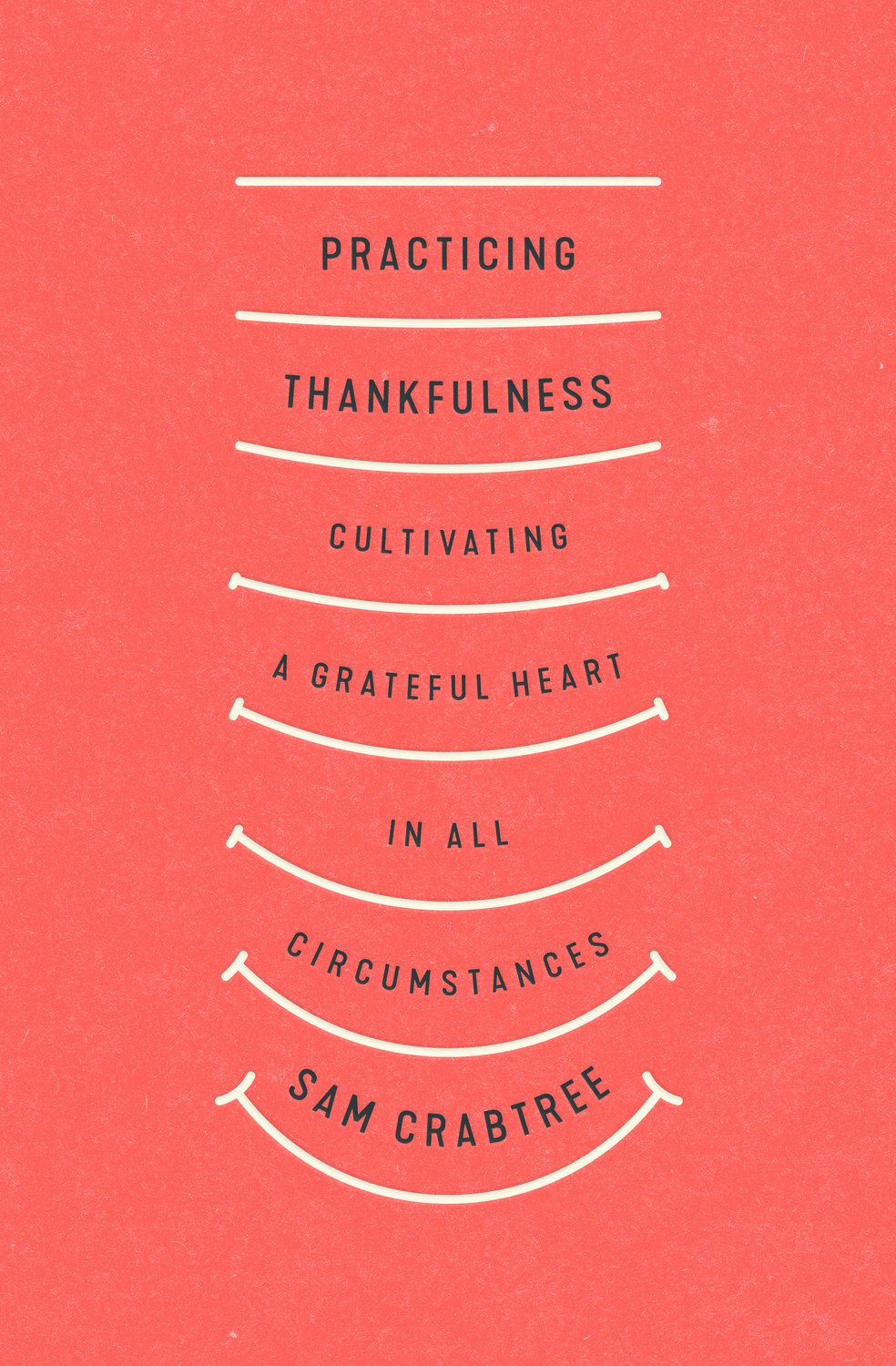If there was ever a part of Scripture that shows thankfulness and gratitude it is Psalm 100. As King David writes:
Enter into his gates with thanksgiving, and into his courts with praise: be thankful unto him, and bless his name. (Ps 100:4)
When I read this, I think David must’ve been in a really good mood the day this came from his pen. Because as I write this—toward the end of Melbourne’s fourth lockdown—I don’t imagine myself so much entering his courts voluntarily but God having to pull me in by my collar as I fight the feelings of weariness, thanklessness, and general fed-up-ness with the way things are. Reading about cultivating a grateful heart in this particular season has a slight irony to it. But it also provides a good reminder of just how thankful we ought to be and how ungrateful we often are. While the season we are in can influence the way we read a book, it doesn’t change what is true. And in this 130-page book, Sam Crabtree packs a lot of truth about thankfulness and gratitude.

Practicing Thankfulness: Cultivating A Grateful Heart In All Circumstances
Sam Crabtree
Practicing Thankfulness: Cultivating A Grateful Heart In All Circumstances
Sam Crabtree
As I write this—toward the end of Melbourne’s fourth lockdown—I don’t imagine myself so much entering his courts voluntarily but God having to pull me in by my collar.
Through 12 short chapters, Crabtree writes clearly about two main topics, gratitude and thankfulness. And as he writes at the beginning, this is a book for (1) those who doubt God’s goodness and find themselves ungrateful often; and for, (2) those who know God’s goodness but wish to grow in their appreciation of it. As we make our way through its pages, the book brings these two aims together—enabling us to see the depth of our ingratitude, and what we can do to become more grateful.
From a Christian perspective, Crabtree defines gratitude as “the divinely given spiritual ability to see grace, and the corresponding desire to affirm it and its giver as good” (p18). This ability is key: as he encourages us to be grateful to God for all things and circumstances, he insists that,
It’s not that we need more for which to be thankful. Rather, we should naturally be more thankful for what we already have. (p23).
Thus Crabtree develops his themes of gratitude and thankfulness in the context of the gifts God has given us already. For a right and wise appreciation of these realities will enable hope:
The thankful mind is able to hold on to true hope. Whereas thankfulness looks back in faith that nothing in our life has been wasted (God never wastes a thing), hope looks forward in faith that nothing will be wasted. Therefore, thanksgiving brightens one’s hopefulness. Every backward glance that marvels at the milestones of God’s past provision helps us look forward with more hope for divine provision yet to come. (p29)
Crabtree reminds us of how good it is to live a life elevating such attitudes. He also provides practical advice on how to cultivate that life. Just as we need to practice our writing to be a better writer, so too we need to practice gratitude and thankfulness in order to be more grateful and thankful.
And this is a particular strength of the book. For we are all prone to be ungrateful:
…all a person has to do in order to be ungrateful is: nothing. Thanklessness can creep up on us. We might even be good thanksgiving theoreticians, while remaining poor practitioners. (p57)
But …
… to practice thankfulness, you don’t just feel something; you do something. Thanks is something you give … Thankfulness enjoys something, and thankfulness expressed enhances that joy. To be grateful and yet not express it is like learning a song but never singing it, riding to the top of the roller coaster but walking down, taking a deep a breath but never exhaling, buying an ice cream cone but letting it melt and drip to the ground, a getting a wedding ring but never putting it on. The gratefulness is completed and consummated in the expression of it. (p65).
So if you would like your heart to opened and exposed … this book will do you a world of good.
So if you would like your heart to opened and exposed—perhaps even have a metal rake run over it—this book will do you a world of good.
I will confess I didn’t like every part of it. I felt the tone lacked a certain pastoral quality, and that it was overly firm in some places where a bit more grey and grace would have been helpful. For example, Crabtree seems to write off all complaining and frustration as being ungrateful for what God has given us. He doesn’t give room for complaint and lament like many of the Psalms we read, and almost suggests we need to ignore these types of feelings, tell them to shut up, and move on. Further, there was some discussion about topics that seemed unnecessary and forced in relation to the main themes. These make moments in this book seem simplistic and reductionistic at times.
Having said this, it has been helpful in reading a book on such a specific topic—especially one that provides food for thought as well as impetus for action.















